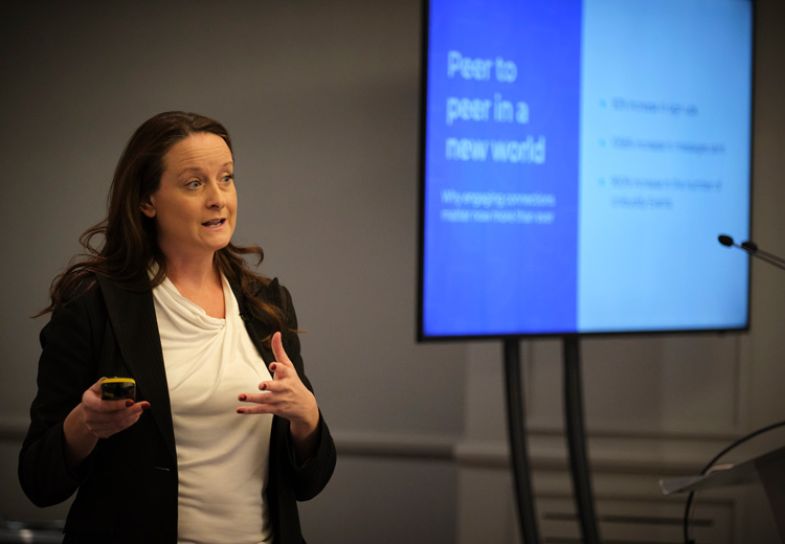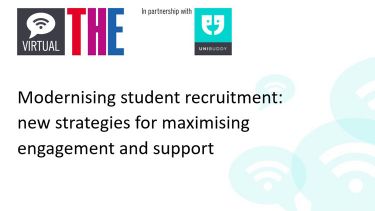
At THE Campus Live UK&IE, Unibuddy and the University of Leicester demonstrated the importance of including the student voice in marketing materials
Universities must carefully consider how best to use their marketing to reach potential students and ensure that they feel included and represented. Speaking at a session at THE Campus Live UK&IE, Emma Froud, UK head of business development for Unibuddy, and Dan Flatt, UK student recruitment manager at the University of Leicester, underlined the importance of using marketing to ensure that prospective students can have conversations with their peers from as early as possible in the recruitment process.
Froud spoke of the importance of including the student voice in marketing materials in order to make meaningful connections. Unibuddy – an integrated peer-to-peer marketing and recruitment platform for university students and institutions – uses tools that allow students to communicate with their peers via mobile devices, when and how they wish to. “Strategies should be student-led,” Froud said.
The ability to showcase diversity was “very powerful” and should be reflected in the ambassadors universities work with. That way, an institution’s marketing would “engage with the student population” and foster a sense of community from the start. “This [approach] is here to stay – the universities are embedding this via the student ambassadors…It means students are far more likely to arrive on campus,” Froud said.
Dan Flatt described how the University of Leicester had been using student ambassadors for a long time, but had tended to use them to target “niche” groups, such as mature students. Since 2019, Leicester has been working with Unibuddy to “embed the student voice through the journey”. Engagement has widened in this time, with peer-to-peer chats allowing users to have “authentic conversations” with current students. “We have really embraced this,” Flatt said. Beyond recruitment, Leicester has used the platform to stay abreast of student needs and improve retention.
This personal approach paid dividends when the pandemic forced institutions to rapidly shift their marketing and student engagement online. This year, Leicester used Unibuddy to support its HeadStart programme, which addresses students’ concerns about beginning university in the pandemic era.
Leicester was using Unibuddy to innovate in other ways, such as giving prospective students access to Leicester’s Blackboard virtual learning environment, Flatt said. Additionally, Unibuddy’s community platform helped the university identify students’ concerns, meaning that ambassadors and faculty could be engaged directly to alleviate fears. “We are mindful of the need to support students in advance…This is going to grow,” Flatt said.
Unibuddy was helping Leicester’s marketing outreach to link students with support, as well as engaging with key stakeholders such as teacher advisers and families. “We have been able to engage with learners all over the world,” Flatt said.
In conclusion, Froud stressed the value of boosting the student voice in marketing materials. By embedding student profiles on pages about scholarships and bursaries, universities send the message that a diverse range of students are welcome. Meanwhile, chat functions allow applicants to talk to students with a similar background to them, making them a powerful tool in “unstealthing” applicants. Flatt underlined the point that the student voice in marketing was “not about the course, but about the similar background”.
The panel:
- Dan Flatt, UK student recruitment manager, the University of Leicester
- Emma Froud, UK head of business development, Unibuddy
Find out more about Unibuddy.

